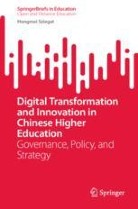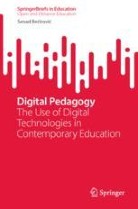
About this book series
Developing human capital through education and training is crucial to social and economic progress. However despite efforts to achieve equity and learning opportunities for all, resource constraints and lack of knowledge and skills can overwhelm the capability of government and non-government agencies, institutions and teachers to provide the required levels of education and training by conventional means. More and more providers are recognising that open, distance and online means of delivery have an important role to play both in providing formal schooling and tertiary education and informal and nonformal education and training for the countless millions wishing to upgrade their skills, knowledge and competences at anytime, anywhere at their own pace, and thus making the lifelong learning for all agenda a reality. This book series examines ways in which open and distance education can empower and enable individuals, groups and even entire communities to develop the knowledge and skills necessary for life and work in the 21st century, help to reduce poverty and inequality, achieve independent and sustainable development and meet the demands of the 21st century knowledge economies and open societies.
The books in this series are designed for all policy-makers, planners, managers, teachers and trainers, researchers, and students who are involved in or interested in applying open, distance and e-learning methods and technologies in informal and nonformal lifelong learning; schooling; technical and vocational education and training; higher education; workplace training and professional development; community development and international aid programmes; and serving the needs of minority groups, the disabled and other disadvantaged persons. They combine an up-to-date overview of theories, issues, core concepts and/or key literature in a particular field with case studies and practical advice in ways that will meet the needs of busy practitioners and researchers. They address such issues as access and equity, distance teaching and learning, learner support and guidance, costing, technology, assessment and learning analytics, quality assurance and evaluating outputs, outcomes and impacts, cultural factors, learning pathways and credit banking, accreditation, leadership, management, policy-making, and professional development for organisational renewal and change.
Researchers interested in authoring or editing a book for this series are invited to contact the Series Publishing Editor: alice.xie@springernature.com
All proposals will be sent out for external double-blind review. Review reports will be shared with proposers and their revisions will be further taken into consideration. The completed manuscript will be reviewed by the Series Editors and editorial advisors to ensure the quality of the book and also seek external review in order to ensure quality before formal publication.
Abstracted/Indexed in:
Scopus
- Part of this series
- SpringerBriefs in Education
- Electronic ISSN
- 2509-4343
- Print ISSN
- 2509-4335
- Series Editor
-
- Junhong Xiao
Book titles in this series
-

-
Designing Discussion for Online and Blended Courses
A Forum for Learning in Higher Education
- Authors:
-
- Dianne Forbes
- Nicola Daly
- Liang Li
- Copyright: 2024
Available Renditions
- Soft cover
- eBook

-
Digital Pedagogy
The Use of Digital Technologies in Contemporary Education
- Authors:
-
- Senad Bećirović
- Copyright: 2023
Available Renditions
- Soft cover
- eBook

-
Learning Analytics in Open and Distributed Learning
Potential and Challenges
- Editors:
-
- Paul Prinsloo
- Sharon Slade
- Mohammad Khalil
- Copyright: 2022
Available Renditions
- Soft cover
- eBook

-
Open and Distance Education Theory Revisited
Implications for the Digital Era
- Editors:
-
- Insung Jung
- Copyright: 2019
Available Renditions
- Soft cover
- eBook

Abstracted and indexed in
-
- SCOPUS

